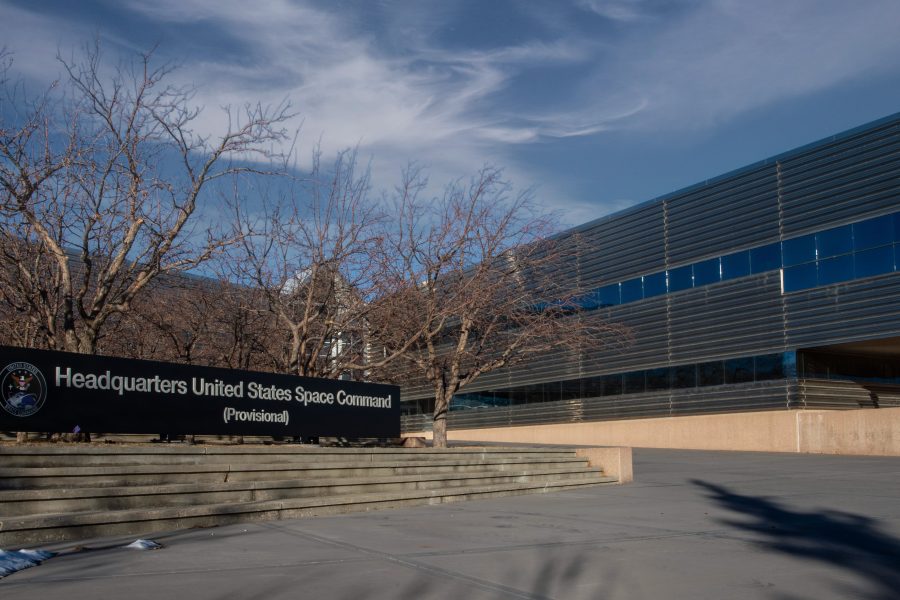President Joe Biden has selected Colorado as the permanent headquarters for U.S. Space Command, reversing a previous decision by his predecessor to move the combatant command to Alabama, the administration announced July 31.
“This decision is in the best interest of our national security and reflects the President’s commitment to ensuring peak readiness in the space domain over the next decade,” National Security Council spokesperson Adrienne Watson told Air & Space Forces Magazine.
Secretary of Defense Lloyd J. Austin III, Secretary of the Air Force Frank Kendall, and SPACECOM commander Army Gen. James Dickinson all supported Biden’s decision, according to a statement by Pentagon Press Secretary Air Force Brig. Gen. Patrick S. Ryder.
The White House said the decision to keep SPACECOM at its provisional headquarters at Peterson Space Force Base in Colorado Springs rather than making a cross-country move to Alabama would safeguard the readiness of U.S. space operations and made the most practical sense.
“U.S. Space Command headquarters is expected to achieve full operational capability at Colorado Springs soon in August,” Watson said. “Maintaining the headquarters at its current location ensures no risk of disruption to Space Command’s mission and personnel, and avoids a transition that could impact readiness at a critical time given the challenges we continue to face.”
The fight to host Space Command’s headquarters has been politically charged from the start. In his final days in office, then-President Trump announced SPACECOM would take up permanent residence at Redstone Arsenal, near Huntsville, Ala.
Critics cried foul and the Biden administration launched a review of the matter early in Biden’s tenure. That left the question of where the command’s permanent home would be in limbo. Colorado and Alabama Congressional delegations postured for advantage, with Colorado lawmakers trying to connect the debate to issues like abortion access.
Rep. Mike Rogers (R-Ala.), Chairman of the House Armed Services Committee, accused the Biden administration in a statement of “political meddling in our national security.” He promised to investigate whether the Biden administration “intentionally misled” Congress on its decision.
“This fight is far from over,” Rogers said.
Colorado’s Senate delegation, Democrats John Hickenlooper and Michael Bennet, praised the decision, saying it was grounded in the best interest of national security.
“Today’s decision restores integrity to the Pentagon’s basing process and sends a strong message that national security and the readiness of our Armed Forces drive our military decisions,” Bennet said in a statement.
The Government Accountability Office faulted the Trump administration in a 2022 review, saying the decision to move USSPACECOM to Alabama had “significant shortfalls in its transparency and credibility.” But GAO did not directly challenge the outcome.
In reversing that decision, Ryder said the Biden administration and the Pentagon “worked diligently to ensure the basing decision resulted from an objective and deliberate process informed by data and analysis, in compliance with federal law and DOD policy” in its final selection.
Space Command was established in the fall of 2019 as a geographic combatant command responsible for military operations 100 kilometers above sea level and beyond. In December of that year, the Space Force was established as an independent military branch.
The USSF’s service component to SPACECOM, Space Operations Command, is also located at Peterson Space Force Base. The state is home to much of America’s existing military space infrastructure.
Space Force Lt. Gen. Stephen N. Whiting, nominated to lead SPACECOM, is the current head of Space Operations Command.
Ryder said that keeping SPACECOM in Colorado will allow it “to most effectively plan, execute, and integrate military spacepower into multi-domain global operations in order to deter aggression and defend national interests.”
